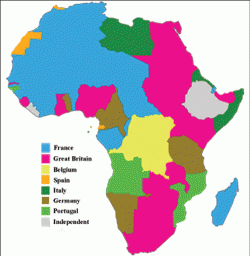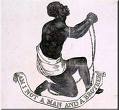Title.

Bryan Porter
5-1-09 P.4
Ghana: Colonization
In 1482, the Portuguese created the first European fort, and Ghana had finally been colonized. However, many other countries such as Great Britain, The Netherlands, and Denmark had influence and colonized in the later years. Many of the countries did endure some resistance one way or another from native tribes. In 1807, the tribal state of Asante, wanting to expand its rule from the interior part of Ghana, invaded the coastal parts of Ghana. Because these invasions were poorly thought out, they disrupted the trades of timber, gold, and palm oil. The British and the Dutch had to comply with them, or else their trade was going to plummet incredibly. Then in 1817, after several more years of invasions by the Asante people, the British and the Dutch authorities came to terms with the Asante. The African Company of Merchants signed a friendship treaty that gave the Asante people vast amounts of land on the coast. Later in 1874 after the Asante had lost their last trading port in the Elmina castle, the Asante were back again fighting the British. However it didn’t end so well. “British soldiers and large numbers of African auxiliaries resulted in the occupation and burning of Kumasi, the Asante capital. (Kaplan et al. 15)”
The Europeans that were in Ghana, utilized gold, timber, and the people themselves to trade! Ghana was once known as the “Gold Coast” because of how much gold it had. The Europeans traded their goods, for one of the most precious and valuable metals around even today. They also traded for timber, which was in surplus there as well. But one of the largest things they traded for were slaves. Slavery, unlike as it is thought as today, was an accepted trade. The slave trade over shadowed almost every other type of trade, just showing how valuable slaves were. For the most part, men and women were captured by force and became slaves. They were also considered “junior” citizens, and were often given specific rights that they could and couldn’t do. Most got shipped off to the new world but some stayed in the very different form of labor on Africa. Overall, the Europeans were not very vicious with the people of Ghana however, if there were uprisings, how else can you solve the problem other than by violence (in the eyes of the Europeans)?
All of this relates to 19th century colonization because the British, one of the countries that colonized Ghana, introduced slavery to Ghana and the slave trade as well. Slaves primarily were taken from their villages, and given to their “owners”. From there, they went on ships that would take them to the Americas, Europe, and sometimes the Caribbean. This was a very important cycle. Americas provided the raw materials, which got shipped, to Europe where factories would make goods out of them. Africa then gave America slaves, and it was an everlasting cycle.

